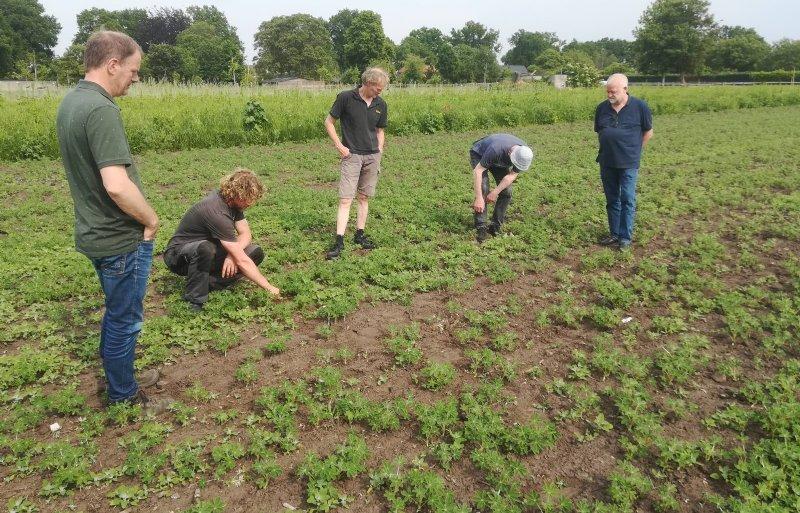Some Limburg and Brabant parties are joining forces in the project 'Connected Peel Experimental Gardens for Smart Rotational Crops'. The aim is to develop new rotational crops that provide maximum benefit on sandy soils. New crops such as leguminous plants play a key role in this.
© Henk Kerkes

Demand for plant-based raw materials and especially plant-based proteins has been on the rise for several years. This has several reasons. The food industry is increasingly opting for vegetable proteins because they are said to be more sustainable and healthier. The vegan and vegetarian trend plays an important role in this,' explains LLTB project manager Patrick Lemmens.
'In addition, other industries are looking for replacements, for example fibers, for fossil raw materials. These vegetable raw materials should preferably come from the region. In this way sustainability gains can be achieved,' explains Lemmens.
They are also looking for substitutes, for example fibres.
Protein-rich crops
This changing market demand offers opportunities for the vegetable sectors. For example, the cultivation of protein-rich crops is becoming more interesting. Think of leguminous plants such as field beans and lupine. This allows entrepreneurs to respond to the demands of the market and thus create new revenue models," says the LLTB project leader.
'At the same time these crops provide sustainability benefits. As a result less soy needs to be imported. Many protein crops also have a positive effect on the soil and/or the environment, which means that the use of crop protection agents and fertilizers can be reduced,' says Lemmens.
In recent years several projects have been carried out to gain more insight into the potential of new crops. For example, the LLTB was the initiator of the project 'New Crops, New Value'. This project investigated which non-traditional crops offer opportunities for new earning models in the vegetable sectors.
Tools
We also looked at what tools might be useful in assessing the potential of these crops. 'Among other things, we have gained a lot of knowledge about the cultivation and application of fibre hemp, field beans, lupine and tagetes,' says the LLTB project leader.
The knowledge gathered will be jointly contributed to the new project 'United Peel Living Labs for Smart Rotational Crops'. In this project farmers, living labs, education, government and research parties from North Limburg, Southeast Brabant and Northeast Brabant are involved.
'In recent years all these parties have set up their own trials. By joining forces, we want to take steps forward together and prevent everyone from having to reinvent the wheel,' Lemmens explains.